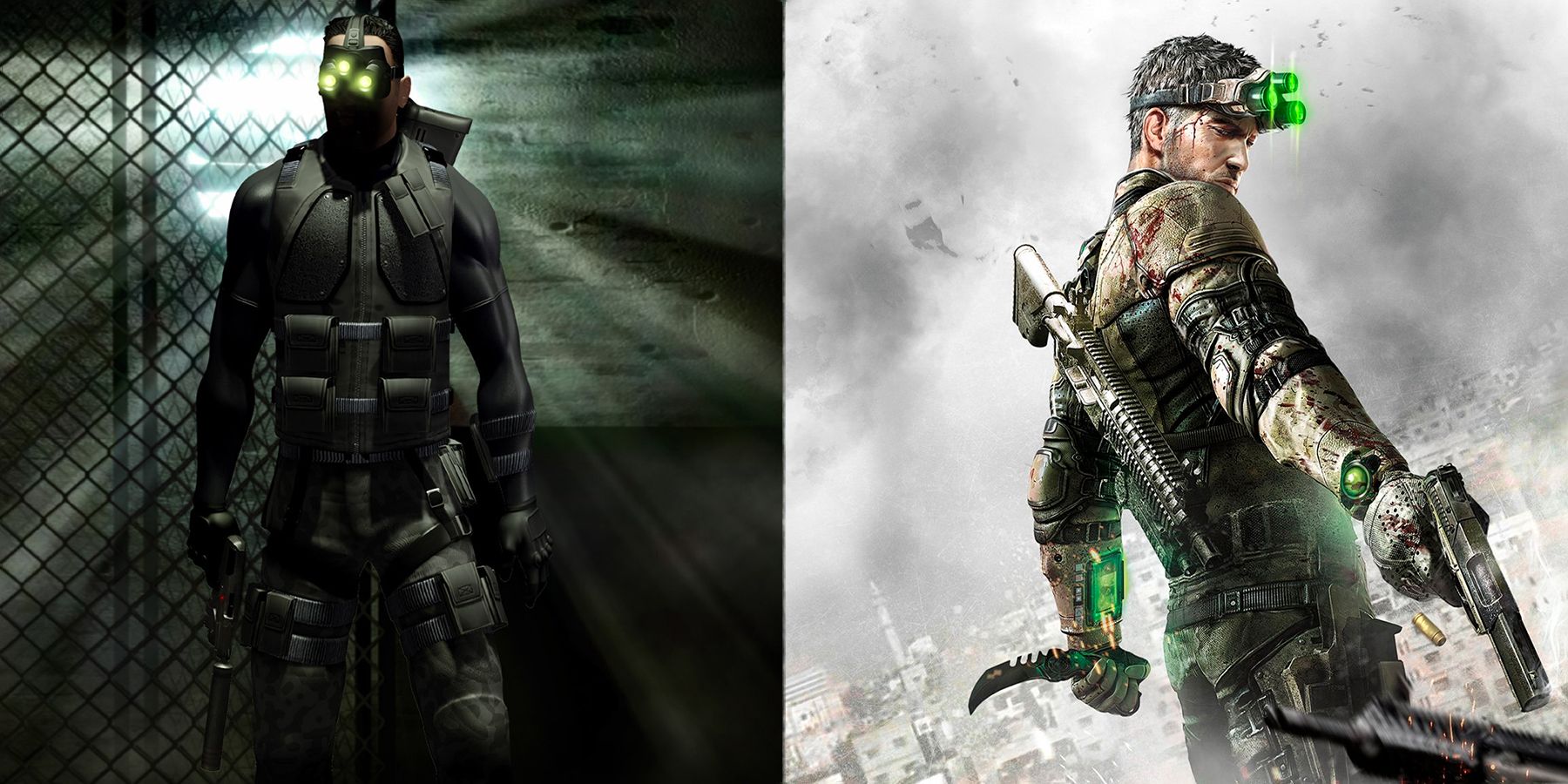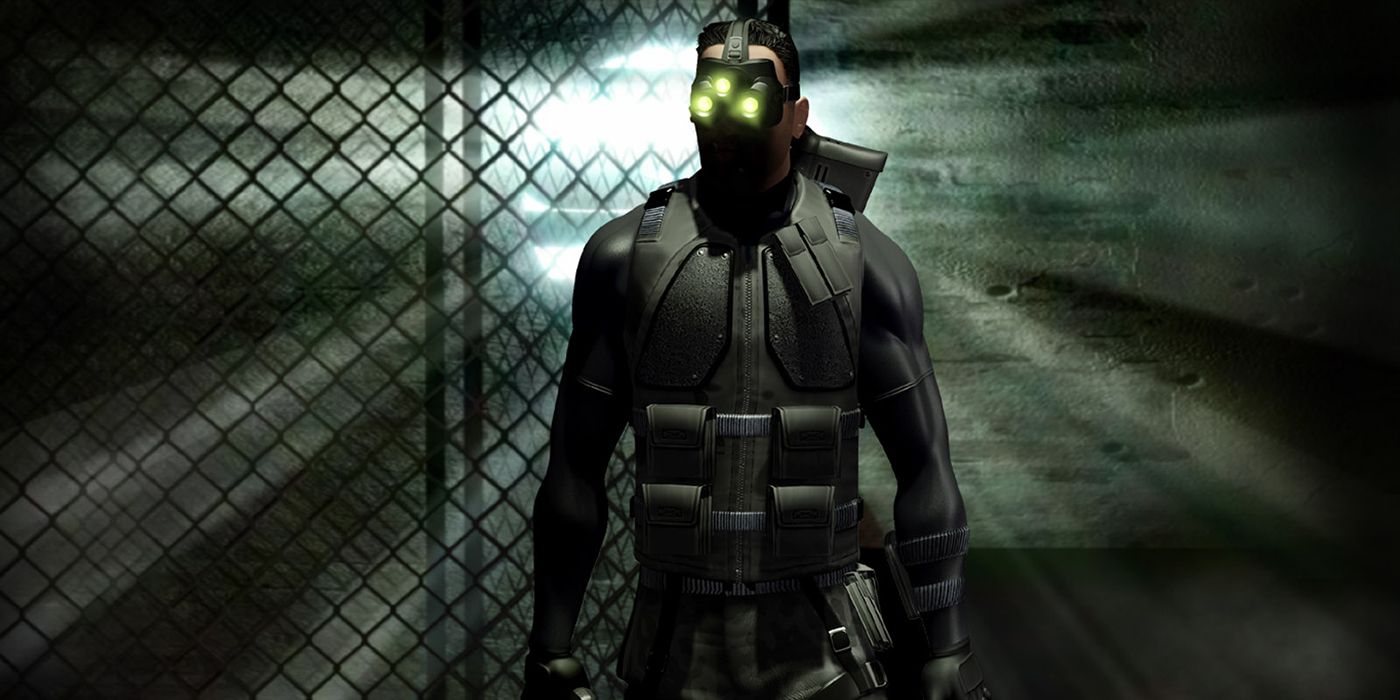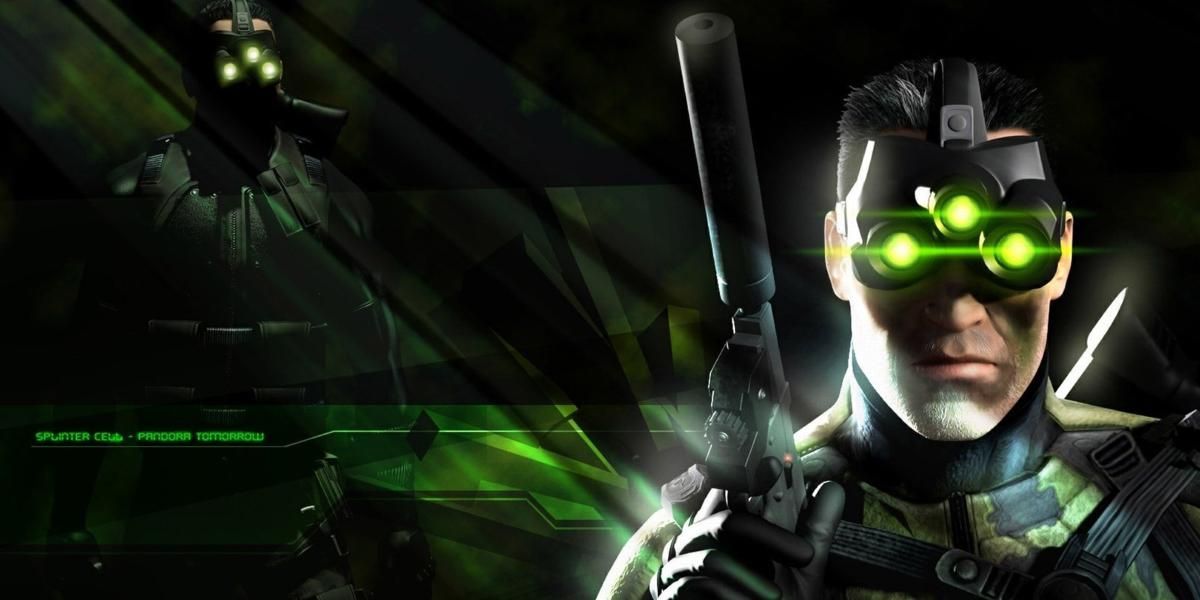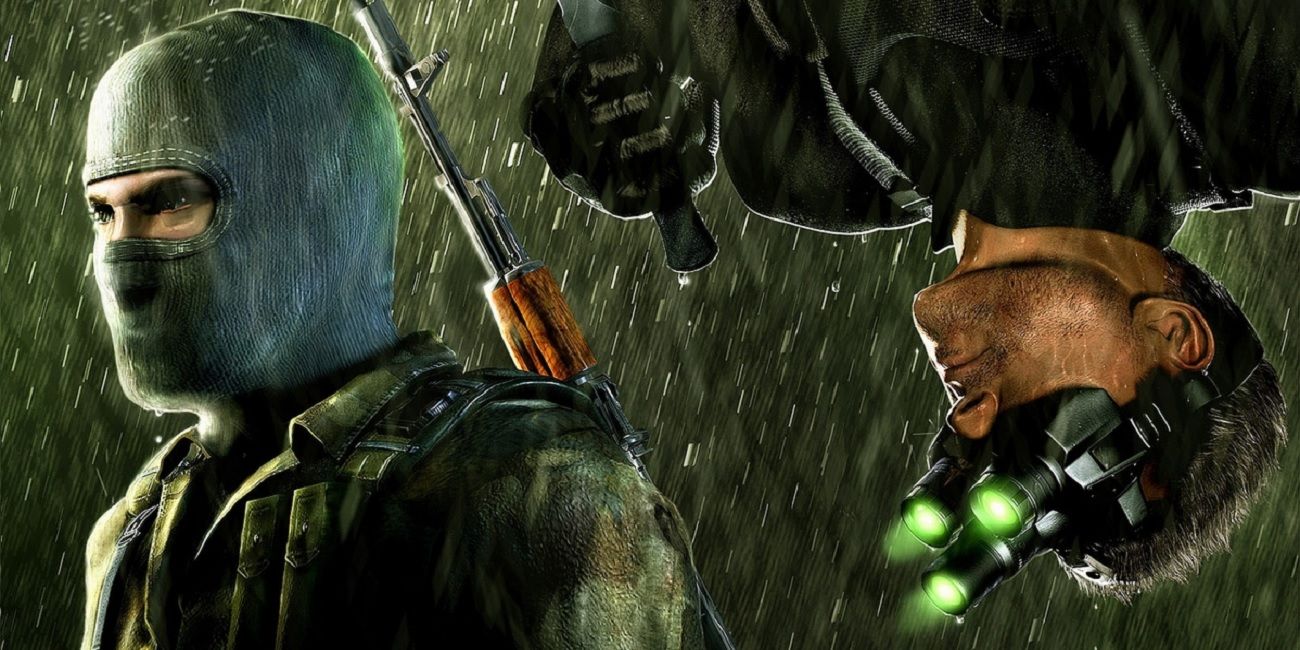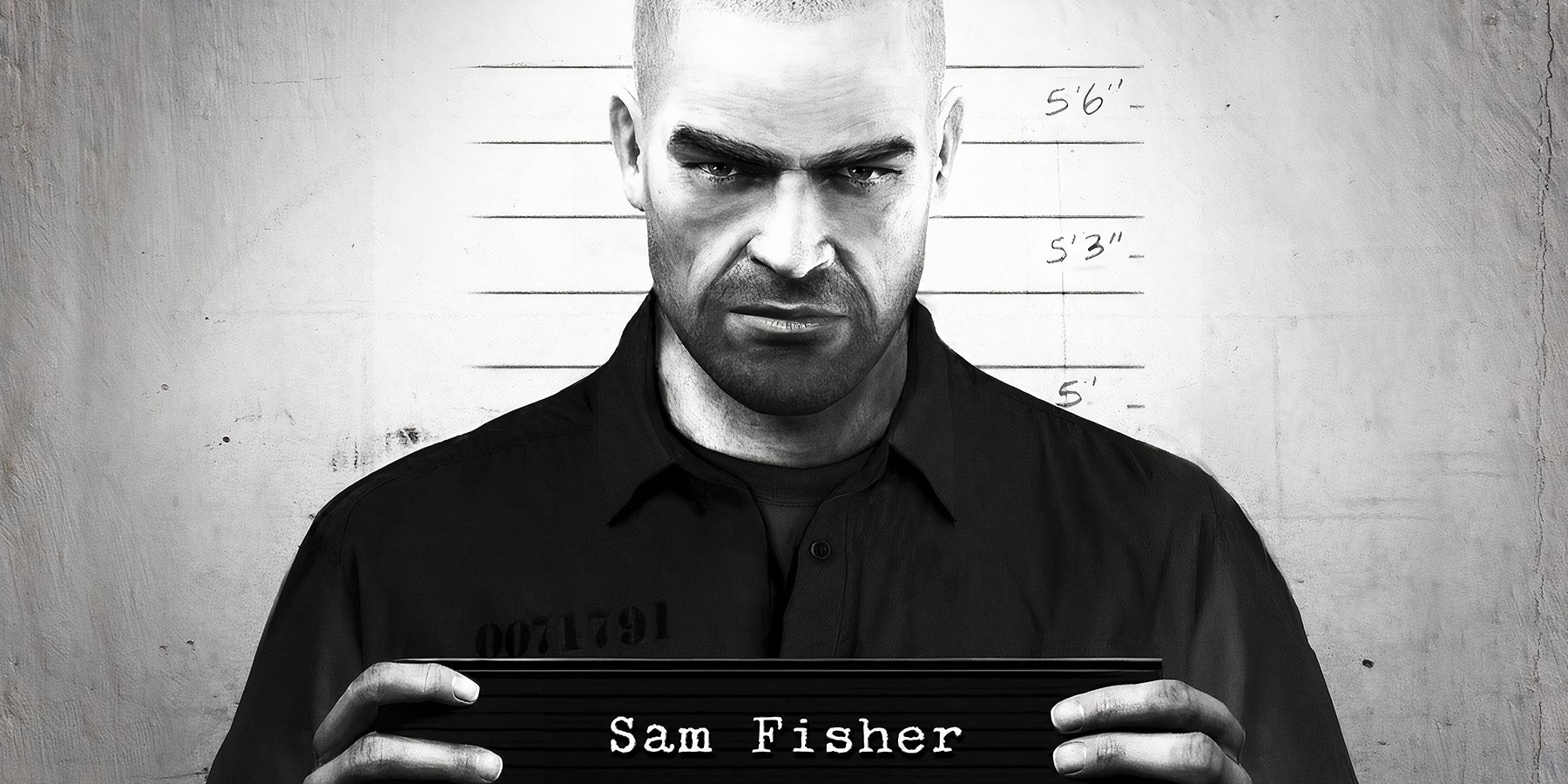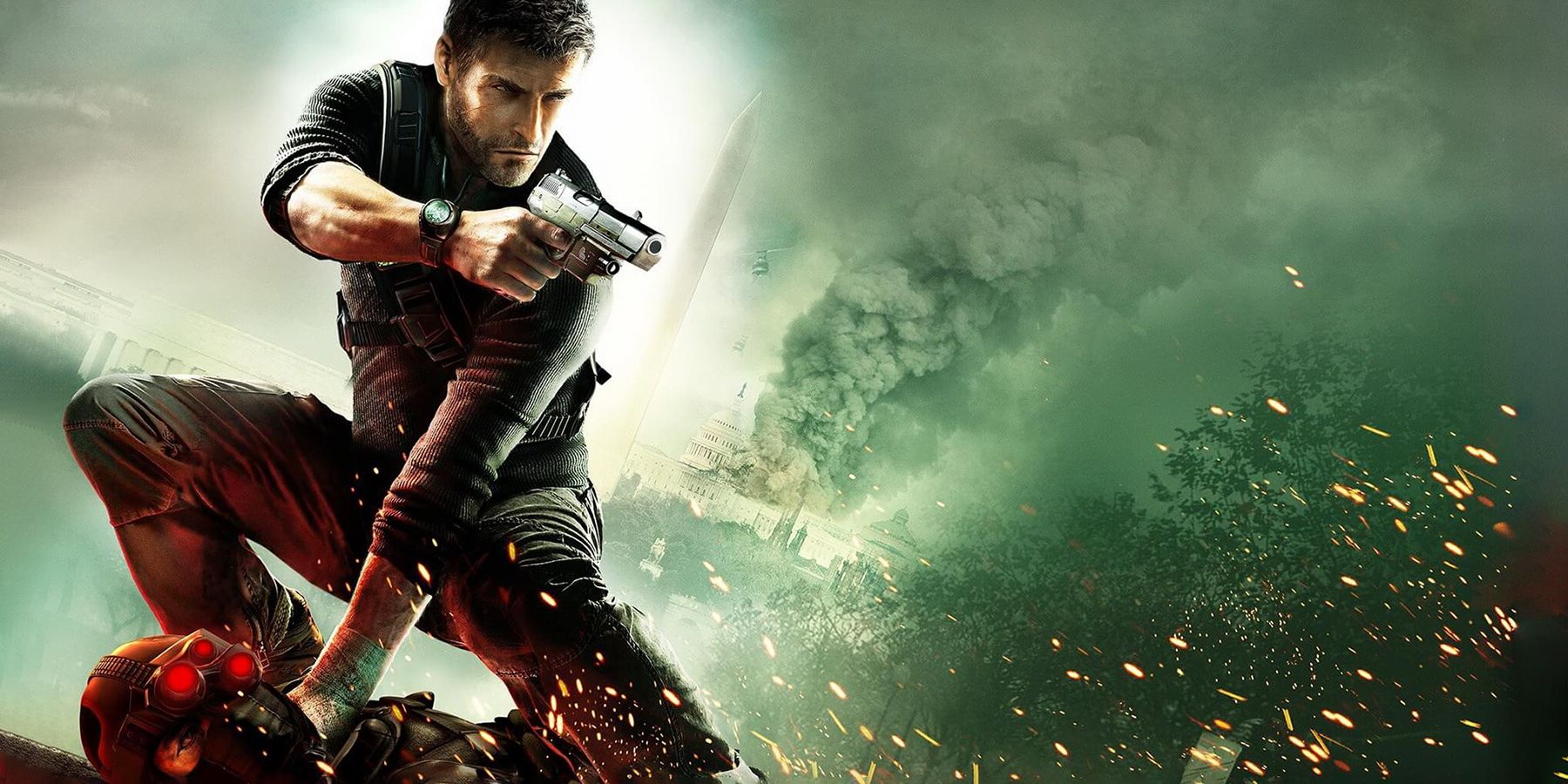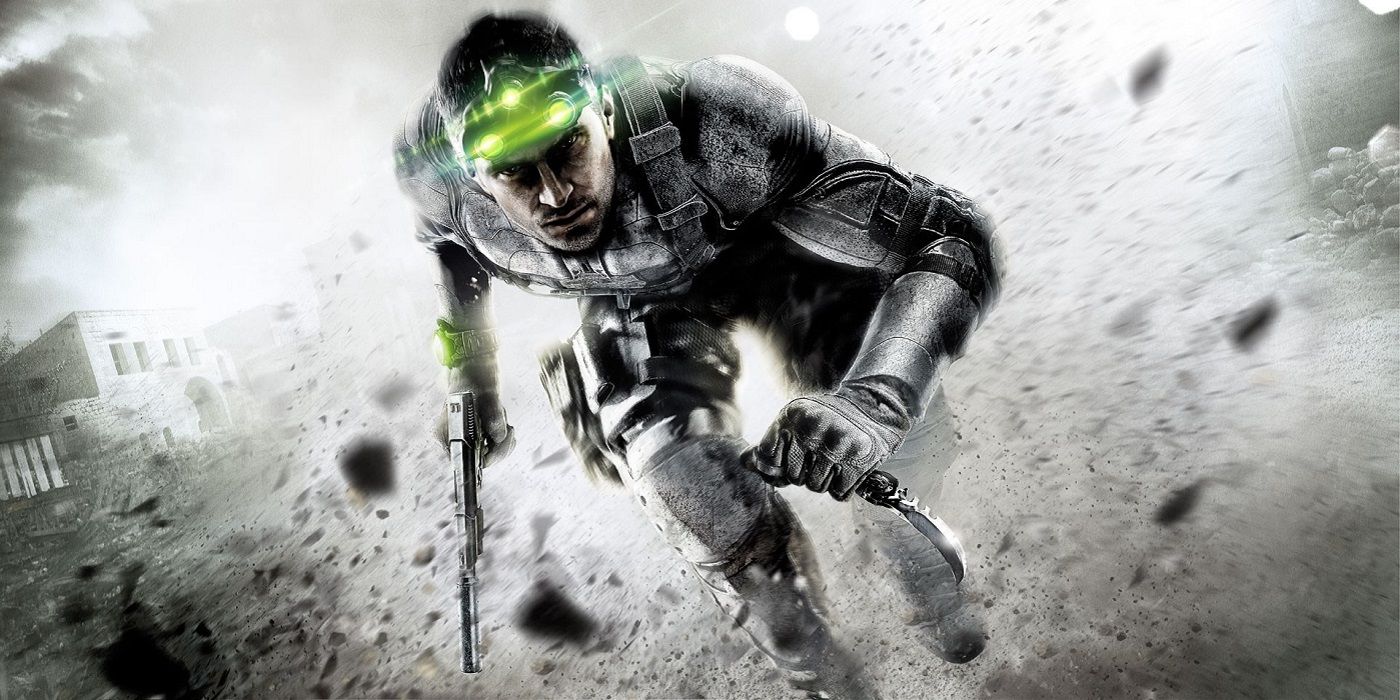Not a year goes by where fans don't ask for another Splinter Cell game, understandably so. Many fans miss the Ubisoft traditional stealth franchise that used to ride alongside Metal Gear Solid when it came to AAA stealth-first action games. Both franchises have been holding it down until the last decade; with the Metal Gear Solid franchise presumably retired after Kojima left Konami, and Ubisoft putting Splinter Cell on indefinite hiatus since 2013. While Metal Gear Survive might have been the proverbial nail in the coffin for Konami's stealth franchise, there's certainly still potential for another entry in the Splinter Cell series.
With reports of a new title in the works, fans will undoubtedly be excited that one of the greatest stealth franchises could receive a modernized take. Of course, given that all reports of this Splinter Cell game state that it's in an early development phase, the next game may not release for at least another few years. In the meantime, fans may consider going back to legacy Splinter Cell games to enjoy some traditional stealth action to help tide fans over. Many of the games in the Splinter Cell franchise are some of the best stealth games of all time, even if a few of the titles in the Splinter Cell catalog have definitely not aged well compared to modern games.
Splinter Cell (2002)
The first Splinter Cell game from 2002 is a prime example of a game that has not particularly aged well, on almost all platforms. While it was still a formative stealth game for the time, mechanically speaking, playing Splinter Cell in 2021 is a clunky and awkward experience. The lighting systems and graphics, close quarters combat and interrogation, movement, among other issues, are incredibly finicky and lacking the greater degree of polish applied to future games in the series. That's assuming players can even play the game on a modern platform: The PC port requires several fan-made patches to work, while emulation is the only viable option for older platforms.
This is without even taking into account the game's inherent design, which doesn't match the quality of later games in the series. The complexity of the narrative is razor thin, far more generic compared to later entries like Chaos Theory, or even Pandora Tomorrow. Plus, this was before Sam Fisher's identity and personality really came into his own, as there's a severe lack of clever writing that the iconic superspy is known for. Fans should play the first Splinter Cell game, but not new players.
Splinter Cell: Pandora Tomorrow (2004)
In terms of Splinter Cell games beloved by the hardcore fans, Pandora Tomorrow is often the underrated pick for best in the series. It's certainly not as mainstream as Chaos Theory was, but a lot of the narrative and mechanical improvements of the series began with Pandora Tomorrow in 2004. Design-wise, Pandora Tomorrow was sort of the development bridge between the first game and Chaos Theory. Several quality-of-life changes improved the gameplay mechanics, and it was clear Pandora Tomorrow was a glimpse into what would become one of the most widely-praised games in the whole series.
Unfortunately, this is the most difficult legacy Splinter Cell game to play, mostly because it's not sold on any modern platforms. Plenty of threads on Ubisoft's forums, as well as Reddit, involve fans asking for a digital re-release of Pandora Tomorrow. The last time Pandora Tomorrow saw a proper re-release was on the PS3/Xbox 360 with the Splinter Cell Classic Trilogy. Ubisoft's existing Splinter Cell Collection still omits Pandora Tomorrow, and likely will for the forseeable future, which is a shame.
Spliner Cell: Chaos Theory (2005)
Which leads to Splinter Cell: Chaos Theory, which is generally the prime example most fans will point to as the best Splinter Cell game in the entire franchise. Understandably so, Chaos Theory was the peak of Sam Fisher's stealth action: The story is a top-notch international espionage thriller that ramps up in intensity as Fisher's mission becomes progressively more precarious. Chaos Theory's mission design is equally top-notch, as the game offers some of the best stealth sandboxes that properly challenges players' stealth abilities and gadget usage sufficiently. Additionally, Chaos Thoery is where the iconic wit of Sam Fisher's personality shines brightest.
It's clear Ubisoft learned a lot from the past two Splinter Cell games in the series, as Chaos Theory is not nearly as punishing to play as past games. From a gameplay perspective, Chaos Theory is easily the most satisfying legacy Splinter Cell stealth game to play; all of the CQC and interrogation feeds into the main gameplay loop artfully, with iconic missions like the Bank allowing players to tackle their objectives in a relatively non-linear manner.
Many look back on Chaos Theory as the last great Splinter Cell game, which is hard to argue against, considering subsequent entries in the series never quite measured up the same way. Plus, the Spies vs. Mercs multiplayer was a surprise hit that many look back on fondly, despite the series being largely recognized for its singleplayer.
Splinter Cell: Double Agent (2006)
Splinter Cell: Double Agent was the last "traditional" Splinter Cell game, and even that is still a stretch when incorporating all of the experimental efforts made in this game. Coming at the beginning of the at-the-time new PS3/Xbox 360 console generation, Splinter Cell: Double Agent was meant to be a truly next-gen entry in the franchise. Alongside higher graphical fidelity and animation, Ubisoft incorporated an ambitious morality system between Third Echelon and the JBA that forced players to balance objectives and thier consequences. Players had to balance maintaing loyalty to Fisher's agency, as well as the terrorist cell he had gone undercover with.
While it's not quite as good as Chaos Theory, there is a surprising amount of things to love about Double Agent. The fourth mainline Splinter Cell game took a lot of risks and made a lot of controversial changes, and while it's functionally not the best in the series, it should be commended for the risks it took. In the grander scheme of things, those risks didn't necessarily pay off in a better game, but Dougle Agent tried to revitalize Splinter Cell in interesting ways.
Splinter Cell: Conviction (2010)
Arguably the most controversial game in the entire series, Splinter Cell: Conviction was a significant departure from the traditional stealth-first design of the franchise's past. Before John Wick was as popular as it was, Splinter Cell: Conviction took a similar narrative turn for Fisher. Players take on the now-retired rogue agent who's working to take revenge on the murderer of his daughter. The gameplay of Conviction is much more action-oriented, often encouraging players to take on a hybrid style of stealth and going loud. To some degree, there was merit in Conviction's gameplay design that deserved praise, but to many fans it wasn't "Splinter Cell" as they knew it.
Splinter Cell: Blacklist (2013)
As for the latest game in the series, Splinter Cell: Blacklist took a middle ground approach with gameplay, which meant the game slightly struggled with its own identity. Merging the new action-oriented gameplay of Conviction with a greater degree of stealth options, Blacklist was a mediocre last act for Splinter Cell that fans struggled with deciding if they enjoyed or not. Compared to Conviction, many thought Blacklist was a step in the right direction, but wasn't quite the same as previous entries in the series. Compounded by the replacement of Fisher's voice actor, many felt that Splinter Cell: Blacklist just wasn't quite the right direction for the franchise.
After Splinter Cell: Blacklist's release and reception in 2013, the series has been on hiatus ever since. Ubisoft as a publisher has changed significantly since then, and many are worried that a new Splinter Cell game won't be able to live up to the expectations of fans who've been waiting years for another entry. Obviously hype and optimism is hard to avoid with news of a new entry, but a new Splinter Cell may not live up to what players want from a modern Splinter Cell game.
A new Splinter Cell game is reportedly in development.

